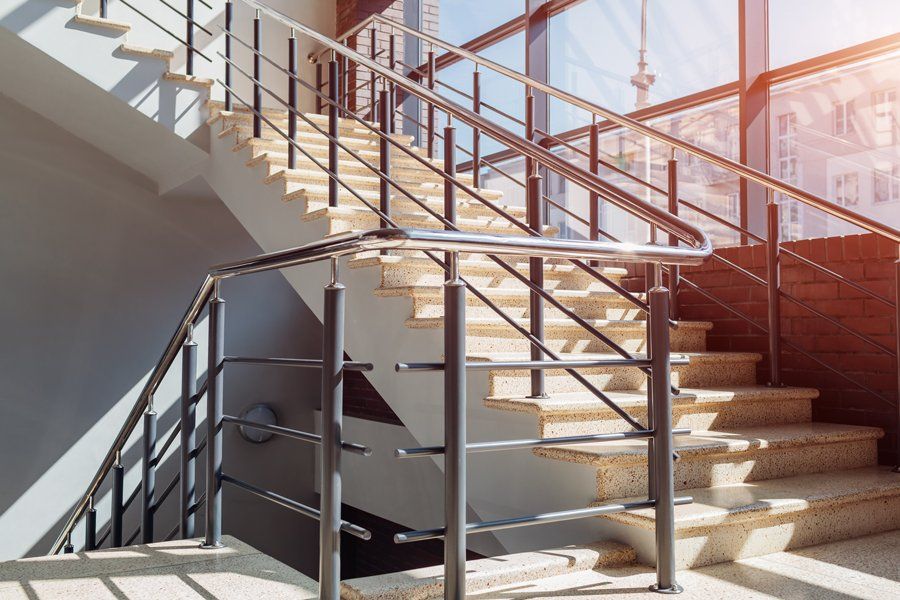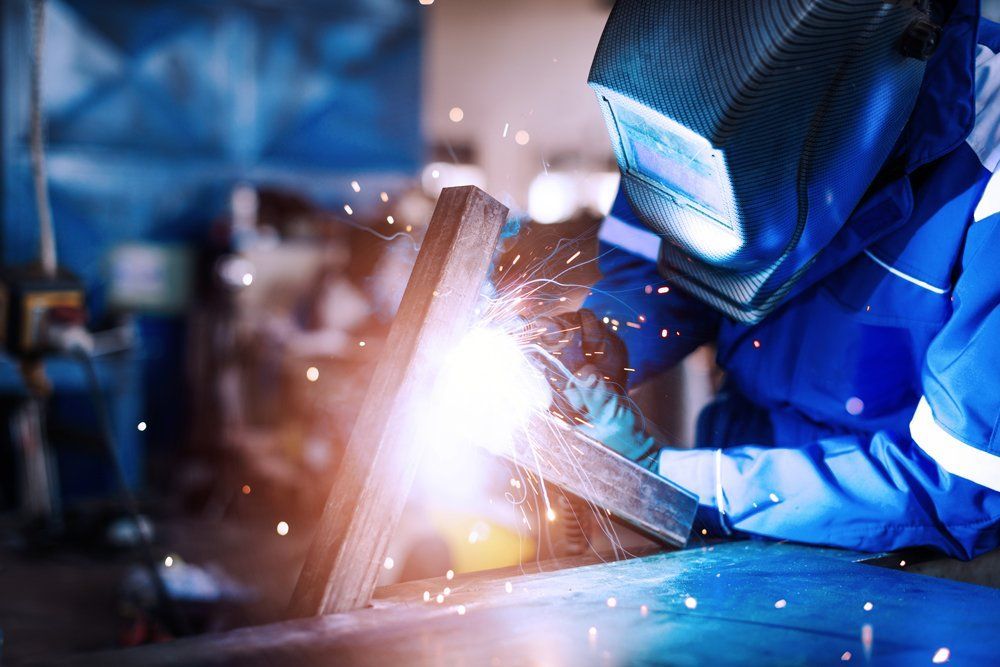Are the Handrails at Your Commercial Property ADA Compliant?

Many commercial property owners
understand the need for handicap accessibility and adequate
handrails. However, property owners don't always find out about
things like ADA compliance until they're facing a lawsuit or
government action. Here is a look at why ADA compliance for handrails
is an important consideration for commercial property owners.
Local or State Handrail Requirements Aren't Always Enough
Local building codes have rules and regulations concerning the placement of handrails. And you should certainly adhere to local building codes at all times. Nevertheless, local and state building codes may not always match ADA compliance for handrails. Sometimes local codes can exceed the ADA requirements but they can also be less strict. You won't know without looking into the ADA requirements, however.
ADA Handrail Requirements Exist for Various Areas
The handrail requirements of the ADA
aren't just for ramps. You may have the right handrails for your
handicap accessible entryway, but do you have the right handrails for
every other part of the property where the ADA says you need them?
According to the ADA, you need to have
handrails on:
- Ramps with a 6-inch or greater rise
- All stairs
- Walking surfaces with running slopes
Your handrails generally need to exist on both sides of the ramp or stairwell. In addition, if your property primarily receives visits from children, you will need to have a second set of handrails for their needs.
ADA Handrail Compliance Requires Expert Handrail Construction
The ADA requirements for handrails also include a lot of instructions on the dimensions and orientation of the handrails. Some modular commercial solutions exist for handrails. But, to have fully ADA compliant handrails that also meet local and state requirements, you should consider an experienced handrail fabricator and welder . ADA handrail requirements specify several construction considerations, and matching those up with local and state requirements is much easier with a professional service. For example, whenever possible, the ADA wants handrails to have a continuous length and continuous gripping surface. Breaks in the continuity are only allowable under certain conditions. Modular handrail solutions may not meet the requirement for continuity, even if they meet other building code requirements. In addition, modular solutions may violate ADA compliance in other ways that you may not immediately realize. For example, if part of the handrail rotates within its fitting, then it's in violation of ADA requirements.
ADA Handrail Violations Can Hurt Your Business
Business and property owners must always take ADA compliance seriously. When you're not in ADA compliance, there's also a chance you're not in compliance with local building codes or state laws as well. Satisfying all the building compliance codes can seem like a hassle, but getting the handrails right for all involved can save your business in several ways. Even outside of legalities, having inadequate handrails for the property can make your business seem noninclusive, which paints your business in a very bad light. You also limit the access of potential clients, customers, or investors. If someone with a disability has trouble traversing the property because of its lack of adequate handrails, that person will likely not want to come back to your property. Just by having compliant handrails and other ADA compliant features, you make the property more appealing to visitors. Additionally, a lack of ADA compliant handrails can lead to legal troubles in various forms. The Department of Justice can investigate any complaint that alleges a lack of compliance. That investigation can lead to a civil lawsuit and potentially some very hefty fines. You can also face lawsuits from private parties. These lawsuits can allege discrimination and even if the lawsuit is a frivolous one, you can spend a ton of money attempting to defend yourself. To make sure your handrails fall into ADA, local, and state compliance, contact us at Sam's Welding, Inc. We can provide fabrication and welding services to ensure your handrails are both safe and in legal compliance.
contact information
Phone: (619) 281-2709
Address: 4821 UNIVERSITY AVE STE B San Diego, California 92105
Serving The San Diego County: San Diego | El Cajon | La Mesa | Santee
License numbers:
#804664
Business Hours:
- Mon - Fri
- -
- Saturday
- -
- Sunday
- Closed
Emergency Services Available and Walk-ins Welcome





visit our location
Proudly Serving: San Diego, San Diego Metro, Chula Vista, La Jolla, Carmel Valley, Rancho Santa Fe, Fairbanks Ranch, Mira Mesa, Carmel Mountain, Rancho Bernardo, Rancho Penasquitos, Escondido, La Mesa, Spring Valley, Coronado, Point Loma, Bonita, El Cajon, Oceanside, Carlsbad, Solana Beach, & Del Mar.

